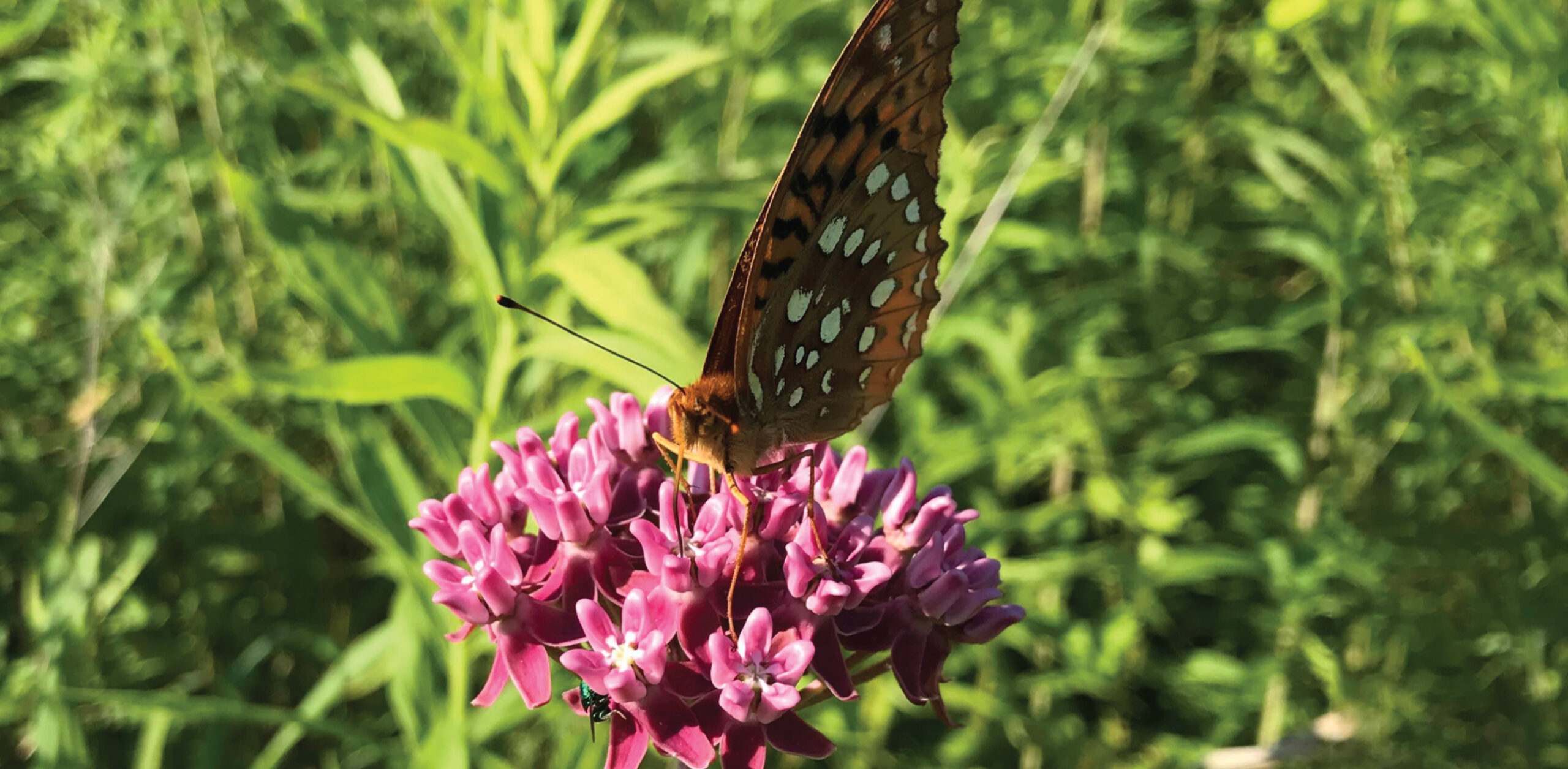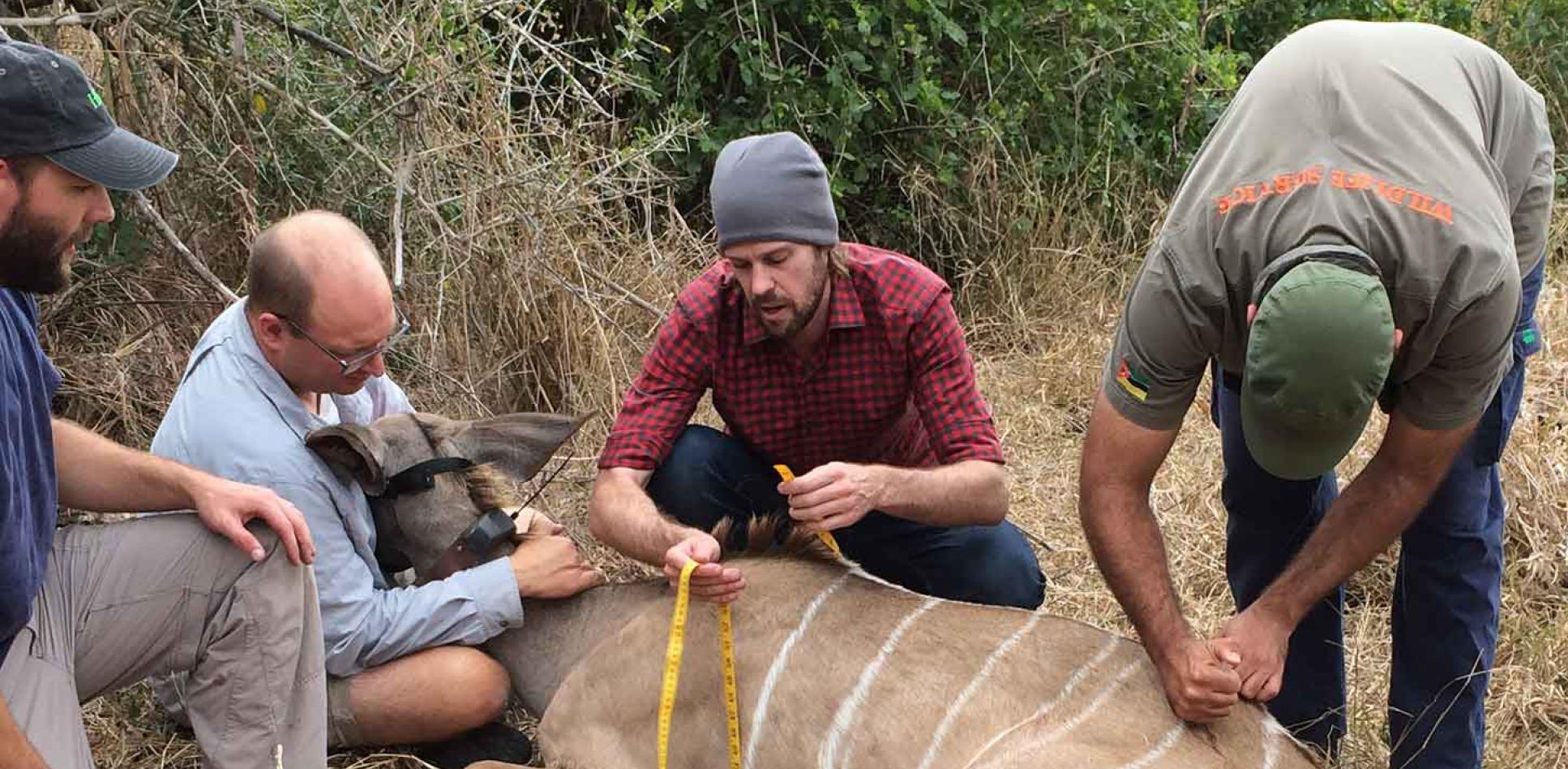

How the decline in pollinators ripples across entire ecosystems
August 9, 2022 ・ Liana WaitThe ongoing loss of pollinators such as honeybees and butterflies could stack the deck in favor of plants that are better at competing for pollinators — with a significant cost to plant biodiversity, Princeton University-led researchers reported in the journal…
Regrow, not reuse: How restoring abandoned farms can mitigate climate change
May 25, 2022 ・ B. Rose HuberThe Institute Woods near Princeton University’s campus comprises 589 acres of serene walking trails and a wooden footbridge enjoyed by hikers, runners, and birdwatchers. Like many forests in New Jersey, this local landmark was a patchwork of farm fields and…
Unchecked global emissions on track to initiate mass extinction of marine life
April 28, 2022 ・ Liana WaitAs greenhouse gas emissions continue to warm the world’s oceans, marine biodiversity could be on track to plummet within the next few centuries to levels not seen since the extinction of the dinosaurs, according to a recent study in the…
World’s thinnest roots are ‘underground weapons’ in ecological competition
February 14, 2022 ・ Liz Fuller-WrightMost of us only think about the easily visible parts of plants — stems, flowers, leaves — but in a new study published in the Proceedings of the National Academy of Sciences, Princeton ecologists Lars Hedin and Mingzhen Lu show that the hidden root…


With DNA toolkit, Rob Pringle is learning how to rebuild broken ecosystems
December 13, 2021 ・ Jeff LabrecqueIn the beginning, Rob Pringle didn’t have a choice. His grandparents were passionate naturalists who loved exploring the outdoors with him and his younger sister, and his parents’ idea of vacations when he was growing up in Ann Arbor, Michigan,…


Gone one, gone all: Without Africa’s large herbivores, a woody vine could threaten the biodiversity of savanna plant communities
September 27, 2021 ・ Liana WaitThe African savanna supports one of the world’s last intact large-mammal communities. Savannas also are home to a diverse array of plant species, but human-driven declines in animal populations could disrupt the balance of both plant and animal species in…
Tropical birds may skip breeding when hot, dry conditions persist
July 20, 2021 ・ Liana WaitDuring the past several years, ecologists have warned that prolonged periods of drought may be leading to declines in tropical bird populations by reducing reproductive success in adults. Now, Princeton researchers report that some tropical birds may not only be…
Walbridge Fund 2021 graduate researchers explore environmental topics from carbon capture to the social power of “sacred ecology”
July 15, 2021 ・ Morgan KellyThe High Meadows Environmental Institute (HMEI) has selected 10 Princeton University graduate students as 2021 recipients of the Walbridge Fund Graduate Award for Environmental Research. The awardees are Maria Curria, Ipsita Dey, Yuki Haba, Shannon Hoffman, Xiaohan Li, Sayumi Miyano, José Montaño…
Joe Kawalec ’21 looks skyward in search of a tiny ecosystem engineer
May 11, 2021 ・ Morgan KellyThe two years Princeton Joe Kawalec spent studying the natural camouflage of the ubiquitous downy woodpecker oddly enough began and ended the same way — tracing the outlines of birds. In between, he observed patterns in tree bark through the ultraviolet…



